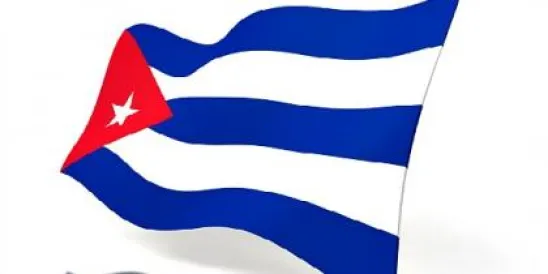The United States officially removed Cuba from its list of State Sponsors of Terrorism this week, according to an announcement by the U.S. State Department via Twitter. The change takes effect immediately, according to the accompanying press release from the State Department. Cuba had been listed since 1982.
On December 17, 2014, President Barack Obama directed Secretary of State John Kerry to review the designation of Cuba under the current facts. On April 15, Secretary Kerry announced his recommendation in favor of removing the State Sponsor designation. Under the relevant laws, including the Export Administration Act, the Arms Export Control Act, and the Foreign Assistance Act, Congress had until today to object to the removal. Hearing none, Secretary Kerry today signed an order finalizing the removal of Cuba from the U.S. list of State Sponsors of Terrorism.
The most immediate effect of the decision will be quicker progress in negotiations on opening mutual embassies in Havana and Washington. U.S. and Cuban negotiators have identified the State Sponsor designation as a sticking point in those negotiations. Our crack team of Cuba embargo lawyers at Sheppard Mullin have a pool going: we now think embassies will be announced before the end of June.
The change will also likely permit an increase in global trade for Cuba (though the country’s absolute share of global trade will remain very small). The designation as a State Sponsor has made most banks extremely wary of dealing with Cuba.
Separately, we expect the change to spur a bit more direct contact between Americans and Cubans, some of which were impossible while Cuba was on the list. For example, the Wall Street Journal reports that Florida has a law prohibiting state-funded universities from sponsoring travel to countries on the list.
Under U.S. law, designation on the State Sponsor list results in four main categories of sanctions: restrictions on U.S. foreign assistance; a ban on defense exports and sales; certain controls over exports of dual use items; and miscellaneous financial and other sanctions. Consequently, the end of the State Sponsor designation means the United States may provide foreign assistance to Cuba.
The change may also give the President some latitude to further revise Commerce Department regulations regarding the export of non-military items to Cuba. Theoretically, it could also allow the United States to end the arms embargo of Cuba, but nobody expects that move any time soon.
Notwithstanding the change announced today, the bulk of the U.S. Cuban embargo remains in place since it is codified in federal statutes. For that reason, most substantial further steps toward lifting the embargo would require action by Congress. The Republican-led House and Senate are not likely to relish aligning with President Obama on Cuba, and Republicans themselves are divided on the issue. Consequently, we expect little to no movement on Cuba in Congress in the coming months.
The Administration has made clear that the United States continues to have “significant concerns and disagreements with a wide range of Cuba’s policies and actions,” but that it is no longer realistic to be concerned that Cuba is sponsoring terrorism. For that reason alone, it’s about time we ended Cuba’s 33 year stint on the State Sponsor list.



 />i
/>i


